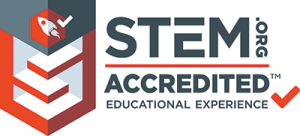Much of what a learner has to do should be built on foundation rather than assumptions. Very often the initial effort of the student has to go towards developing an approach conducive to learning. Unfortunately, this is not for the most part, the case in practice. Learning is reduced to listening, grasping, reading and application. This indeed takes too much for granted. First of all, is the mind ready? It is easier to open a tap of water than a mind susceptible to distraction for no fault of the learner. Commanding the mind remains a challenge throughout one’s life time. Attention span varies from one individual to another. Instead of fighting it, which is a lost battle, one must look towards ways of attracting one’s mind.
How does one open up the mind? It seems to depend on the ability of the tutor to generate curiosity. It is also believed that necessity is the mother of invention and if paying attention is a matter of life and death then it is possible to command one’s mind. Actually this is not how it happens. Curiosity is the key towards sustaining attention. However, there are other difficulties such as inherent fear which is the greatest hurdle in learning. Spell ‘Mathematics’ and for many you have spelt ‘F…E…A…R’. It is common knowledge that Mathematics requires thinking which is why the tutor must be friendly. If the tutor is strict then it is an added problem for students. Another problem which makes Mathematics a perceived monster is that it is a subject only for highly intelligent people. This notion takes fruition in many learners right from a young age. There is then false evidence appearing real when they score poorly in their initial examinations. The difficulty begins from there.
Let us examine the belief that Mathematics is only for highly intelligent people. This was not taken seriously in the past because it was told to children that every human being has the same intellectual capacity. This became reason enough for teachers to teach by brute force rather than by applying learning theories. It was realized by research that students have different learning styles and attention has to be attracted and not demanded. Surprisingly these days a belief is spreading that one needs an I.Q. of 150 to specialize in Mathematics for a career. These are basically destructive beliefs and naturally they put off many students.
Therefore the first step in online tutoring is to rid learners of these beliefs so that the learning train is smooth. Then the tutor must identify through interaction the sharp faculties of individual learners and tap them. If a teacher gives in to the negative beliefs mentioned above then he/she has failed. In online tutoring assumptions about a learner’s intellectual capacity are seldom made. Instead new potential is discovered as is the way to go.









